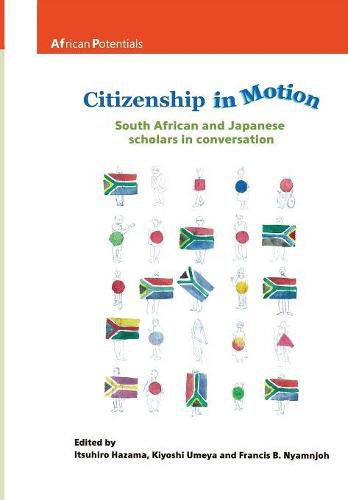Readings Newsletter
Become a Readings Member to make your shopping experience even easier.
Sign in or sign up for free!
You’re not far away from qualifying for FREE standard shipping within Australia
You’ve qualified for FREE standard shipping within Australia
The cart is loading…






This title is printed to order. This book may have been self-published. If so, we cannot guarantee the quality of the content. In the main most books will have gone through the editing process however some may not. We therefore suggest that you be aware of this before ordering this book. If in doubt check either the author or publisher’s details as we are unable to accept any returns unless they are faulty. Please contact us if you have any questions.
Anthropological reflections on citizenship focus on themes such as politics, ethnicity and state management. Present day scholarship on citizenship tends to problematise, unsettle and contest often taken-for- granted conventional connotations and associations of citizenship with imagined culturally bounded political communities of rigidly controlled borders. This book, the result of two years of research conducted by South African and Japanese scholars within the framework of a bilateral project on citizenship in the 21st century, contributes to such ongoing efforts at rethinking citizenship globally, and as informed by experiences in Africa and Japan in particular. Central to the essays in this book is the concept of flexible citizenship, predicated on a recognition of the histories of mobility of people and cultures, and of the shaping and reshaping of places and spaces, and ideas of being and belonging in the process. The book elucidates the contingency of political membership, relationship between everyday practices and political membership, and how citizenship is the mechanism for claiming and denying rights to various political communities. ‘Self’ requires ‘others’ to construct itself, a reality that is subject to renegotiation as one continues to encounter others in a world characterised by myriad forms of interconnecting mobilities, both global and local. Citizenship is thus to be understood within a complex of power relationships that include ones formed by laws and economic regimes on a local scale and beyond. Citizenship in Africa, Japan and, indeed, everywhere is best explored productively as lying between the open-ended possibilities and tensions interconnecting the global and local.
$9.00 standard shipping within Australia
FREE standard shipping within Australia for orders over $100.00
Express & International shipping calculated at checkout
This title is printed to order. This book may have been self-published. If so, we cannot guarantee the quality of the content. In the main most books will have gone through the editing process however some may not. We therefore suggest that you be aware of this before ordering this book. If in doubt check either the author or publisher’s details as we are unable to accept any returns unless they are faulty. Please contact us if you have any questions.
Anthropological reflections on citizenship focus on themes such as politics, ethnicity and state management. Present day scholarship on citizenship tends to problematise, unsettle and contest often taken-for- granted conventional connotations and associations of citizenship with imagined culturally bounded political communities of rigidly controlled borders. This book, the result of two years of research conducted by South African and Japanese scholars within the framework of a bilateral project on citizenship in the 21st century, contributes to such ongoing efforts at rethinking citizenship globally, and as informed by experiences in Africa and Japan in particular. Central to the essays in this book is the concept of flexible citizenship, predicated on a recognition of the histories of mobility of people and cultures, and of the shaping and reshaping of places and spaces, and ideas of being and belonging in the process. The book elucidates the contingency of political membership, relationship between everyday practices and political membership, and how citizenship is the mechanism for claiming and denying rights to various political communities. ‘Self’ requires ‘others’ to construct itself, a reality that is subject to renegotiation as one continues to encounter others in a world characterised by myriad forms of interconnecting mobilities, both global and local. Citizenship is thus to be understood within a complex of power relationships that include ones formed by laws and economic regimes on a local scale and beyond. Citizenship in Africa, Japan and, indeed, everywhere is best explored productively as lying between the open-ended possibilities and tensions interconnecting the global and local.